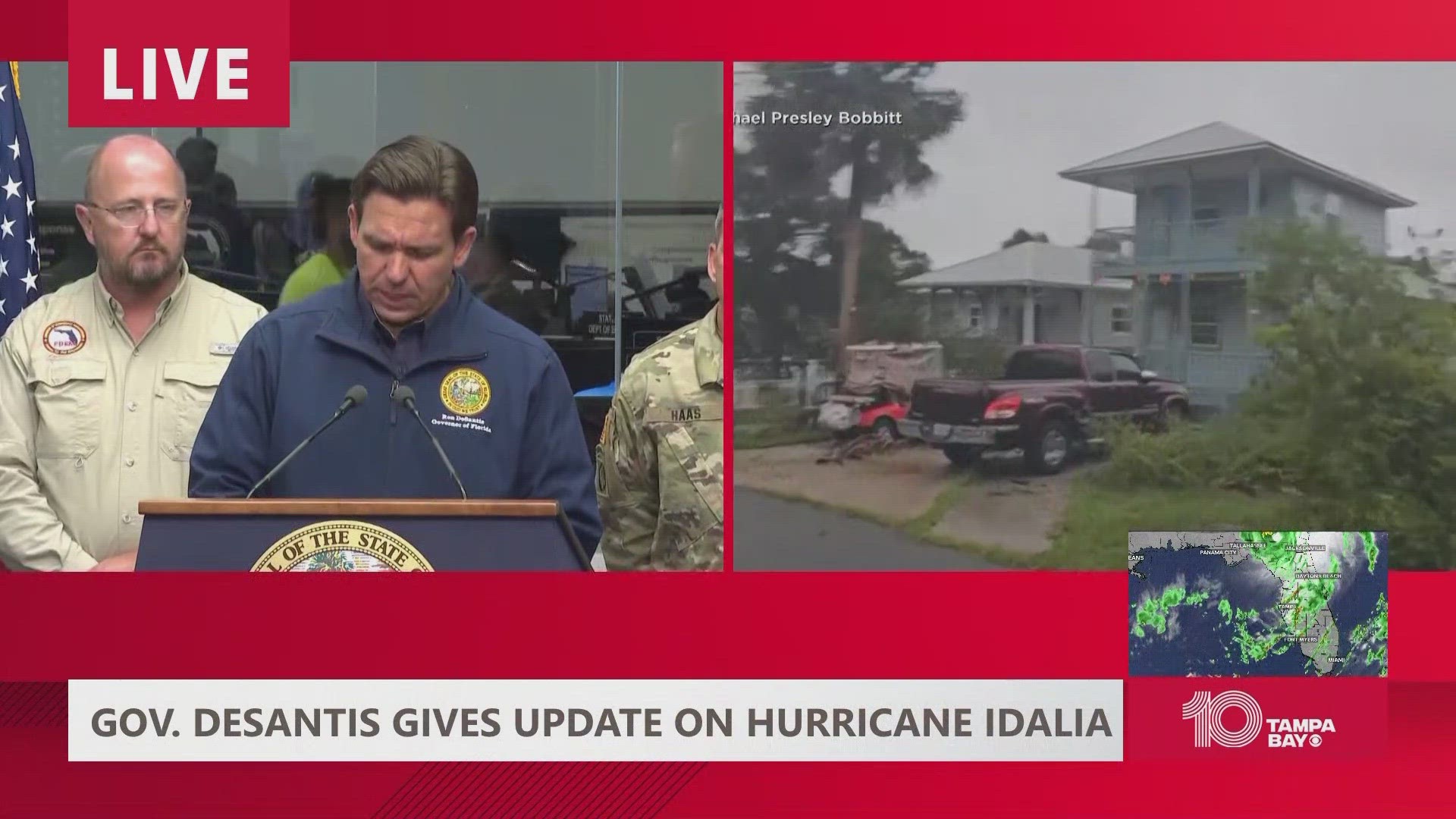TAMPA, Fla. — As Florida's Gulf Coast continues to feel the effects of Hurricane Idalia, health officials say floodwaters left in its wake are cause for even more concern.
The Category 3 storm made landfall in Florida's Big Bend region Wednesday morning, bringing with it a level of destruction the area had never seen. Downgraded from a Category 4 storm just hours before Idalia first hit Keaton Beach, officials said the storm surge could rise as high as 16 feet in some places.
While residents begin to pick up the pieces left behind by Idalia, health experts are reminded of the aftermath of Hurricane Ian, which helped foster ripe conditions for the formation of the flesh-eating bacteria, Vibrio vulnificus. Last year, the Florida Department of Health recorded 74 cases and 17 deaths directly related to flooding after Ian.
According to the Centers for Disease Control and Prevention, the bacteria causes an infection that leaves an open wound that won't heal, while causing flesh to die. The condition, called necrotizing fasciitis, can result in amputations and sometimes death.
Biologists say Vibrio, which occurs naturally in the environment, thrives and spreads through warm water. At the height of summer in the Tampa Bay area, water temperatures have hovered between 87 and 91 degrees, creating especially hospitable conditions for bacteria.
"It loves warm water and it loves brackish, so a kind of a mix of salt and freshwater as you might find in Tampa Bay," professor of Integrative Biology at the University of South Florida Dr. Valerie Jody Harwood told 10 Tampa Bay.
Before Idalia made landfall, the department of health had already reported more than two dozen cases of Vibrio and five deaths in the Tampa Bay area so far in 2023. Bacterial infections can arise through open wounds, water ingestion or in connection with raw seafood.
Health officials urge anyone who is immuno-compromised or has any open wounds to be especially cautious by avoiding Idalia's floodwaters if they can help it, and further, avoid going into the water when it's warm.

